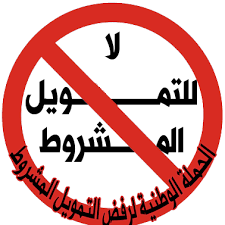Press Releases

PR/EN/0404020/14
On Monday, 30 March, the European Union (EU) Commission Office in Jerusalem sent an official letter to the Palestinian NGO Network titled: Clarification Letter regarding EU-funded contracts. The introduction to the letter confirmed the EU’s keenness on its relationship with Palestinian organizations and the building of a democratic Palestinian civil society. At the same time, the letter expressed the EU’s deep annoyance at the what it called the “misinformation campaign”, clearly referring to the Palestinian National Campaign to Reject Conditional Funding. The letter also reiterated the EU’s justifications for imposing unacceptable political conditions - recognition of “terrorist” lists and screening measures – as ultimatums to receive funding. However, the EU’s clarification letter is nothing more than smoke screen to normalize and promote the unacceptable conditions that criminalize the legitimate Palestinian national struggle and induce the division of Palestinian civil society.
Unfortunately, the EU’s message contained no new information or explanation; repeating previous arguments that have been debunked by the Palestinian National Campaign’s statements and publications on the issue. The only point that is clear in the EU’s message is the affirmation of the obligation to adhere to the EU’s regulations on anti-terrorism, restrictive measures and laws - in clear violation of its international obligations, the special case of Palestine, and Palestinian law as well. Specifically, the EU avoided answering the most basic and important question: Why do Palestinian organizations have to recognize the EU’s terrorism designations and related restrictive measures? The EU once again chooses to ignore the uniqueness of the colonial situation in Palestine and to narrow the scope of the right of peoples to struggle for self-determination. The letter used misleading formulas that differentiated between the organizations classified in its lists and the people belonging to and sympathetic to these organizations, in order to reinforce the goal of criminalizing the Palestinian national struggle and isolating freedom fighters and activists as if they are not part of our people and their struggle. Without a doubt, this goal is the same as the goal of the Zionist-Israeli campaigns that seek to discredit and criminalize our legitimate struggle. The EU has deliberately convoluted the notion of changing its terrorist lists, which involve a long-term struggle, and the imposition and adherence of these lists by civil institutions in exchange for funding. It is very humiliating and demeaning to ask Palestinians to condemn themselves for European funding.
The EU message aims to normalize and market their conditions after a wide range of Palestinian organizations rejected them. For this reason, the EU highlighted its vital role in supporting Palestinian civil society, and its purported values related to fighting poverty, democratization, human rights, etc. In this context, the message attacks the Palestinian National Campaign, claiming that it spreads “false and misleading information” and uses the “language of aggression and threats." Further, while claiming to call for constructive dialogue, freedom of expression, and assembly, the EU has yet to identify what is wrong, misleading, and constitutes aggression and threats. It is clear that respect for dialogue with the EU is only limited to those who agree with its conditions and buy into its arguments and justifications. The EU’s dialogue table, which the Palestinian National Campaign has repeatedly requested access to via official letters, to this day remains elusive and exclusive. In its communications with the EU, the Campaign steering committee has clarified the reasons for rejecting the conditions and the seriousness of the repercussions of their imposition, particularly towards Palestinian organizations, the people and the EU itself. While minimal overtures were made, none have materialized; the EU has yet to accommodate the requests for meetings and hear the voice of the members of the Campaign which represents the voice of the wider segment of Palestinian civil society.
The Palestinian National Campaign to Reject Conditional Funding, which includes more than 230 Palestinian organizations, continues to believe in dialogue and their right to express their opinion. It further calls on the EU to review its position to impose conditions on Palestinian NGOs and recognize that it is following in the footsteps of the United States Agency for International Development (USAID). If the EU is truly committed to the development and democratization of Palestinian civil society, then this cannot be by imposing political conditions or by normalizing and marketing their conditions in an attempt to lure Palestinian organizations to sign. The EU's insistence on enforcing this policy will not lead to the creation of a free democratic society, but rather to its fragmentation, and prevents Palestinian organizations of all kinds from playing their vital role in the process of liberation and democracy, free from Israeli colonialism and apartheid.
